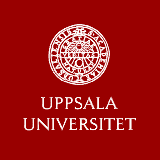Kalendarium
Högre seminarium2 mar 2017 kl. 15:15 – 17:00
Lokal: Eng 2-K1022
Dr. Maximilian Benz & Prof. Dr. Christian Kiening (University of Zurich)
Time and Temporality in Late-Medieval and Early Modern Travel Writing
Arrangör: Litteraturvetenskapliga institutionen Kontaktperson: Paula Henrikson Late-medieval travel writing not only concerns spatial expansion. It devotes a lot of energy on issues of time and temporality. Firstly, travel writing offers the possibility to link something present with earlier or later events in the salvific history. According to the medieval world view, travelling through space is always connected with travelling through time: the chronotopic order of the Christian world implies that travelling east brings one not only to paradise but also to primordial time or at least to earlier layers of temporality. The narrative texts, secondly, are able to reproduce the successive, time-consuming structure of travelling, but their temporality stands by itself and can generate specific meanings, e.g. by cutting or lengthening certain parts of a journey and thus downsizing or emphasizing the persons, events or concepts it is connected with. This permits, thirdly, an alternative way of thinking within the Christian system – by connecting (religious, political, behavioural, social etc.) otherness with a time structure – and can lead travel writing into a genre of self-reflection. In that way genuinely literary texts can adopt the structure of travel writing and produce different imaginings of time in order to reflect the conditions and effects of temporality. Thus, time is not only a constituent narratological part of late-medieval and early modern travel writing, but can also be its topic and a ‘medium of reflection’. In our paper we will analyze the specific functions of time and temporality in several types of travel writings, all related to the pilgrimage to the holy land: John of Mandeville, Hans Tucher, and Daniel Ecklin.
